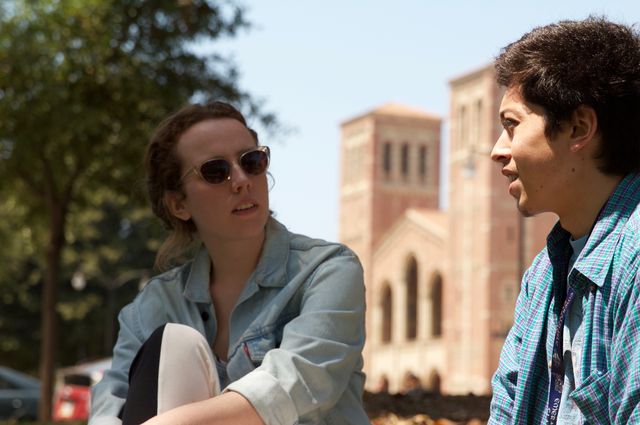It doesn't take a rocket scientist to send a NASA mission to Mars — it takes a vast constellation of rocket scientists, astrophysicists, mathematicians, computer scientists and other specialists. Collaboration is key to accomplishing ambitious goals not just in outer space, but right here on Earth, where a proliferation of cross-disciplinary research is driving advances in areas as wide-ranging as global climate change and individualized medicine.
But when it comes to tackling some of today’s biggest societal challenges, such as racism, urban poverty and educational inequity, collaborations among economists, historians, political scientists, anthropologists and other social scientists have been hard to come by. This certainly isn’t because of an absence of interest, but stems from higher education’s longstanding tradition of making distinctions among the social science disciplines. The specialized language and research tools used in one field are not necessarily utilized in another.
“That way of dividing up knowledge no longer makes sense in the 21st century, a world where we realize there are deep interconnections,” said Juliet Williams, a professor of gender studies, one of 18 departments that comprise the social sciences at UCLA. “There are huge domains that could be explored if we opened up the divisions between the disciplines. Just as it would be absurd in the life sciences for any single neuroscientist to unlock the secrets of the brain, a problem like racial bias isn’t going be solved by a single social scientist.”
UCLA intends to narrow those disciplinary divides and broaden opportunities for collaboration with a new Master of Social Science program that will provide aspiring social scientists with interdisciplinary, hands-on training in a broad range of problem-based social science research approaches.
Designed to better prepare its graduates for their next career move, be it pursuing a Ph.D. or landing a job as a multifaceted researcher in the corporate or nonprofit world, the new program is the creation of a multidisciplinary committee of faculty convened by professor of anthropology Alessandro Duranti during his 2009-2015 tenure as dean of social sciences. Duranti’s innovative “take” on social sciences education is also exemplified by Dissertation Launchpad, which, since 2014, has trained graduate students to discuss their research with non-experts in ways that are both intriguing and inspiring.
The social science master's program is currently accepting applications for its launch in fall 2017. Its inaugural cohort of 25 students will bring their discipline-specific insights and expertise to the task of broadening their knowledge base in the social sciences and working together on applied research projects. Over the course of the yearlong program, they will learn to identify and frame social problems; analyze research data generated from different theoretical, methodological and disciplinary approaches; and present their findings in clear, compelling written and oral formats.
The centerpiece of the curriculum will be a keystone course taught by ladder faculty and featuring guest lecturers, demonstrating how social science research advances understanding of a variety of contemporary social issues. For each topic — from health disparities to the changing nature of marriage — three faculty, each from a differentsocial science department, will discuss how they each would approach the issue from their particular disciplinary perspective.
Guest faculty will be drawn from many of the “great models [of collaboration] we have on campus,” said Williams, who cited as an example Elinor Ochs, professor of anthropology and linguistics. Director of the UCLA Sloan Center on the Everyday Lives of Families, Ochs led a landmark study a little more than a decade ago that broke new ground by bringing together researchers in biological anthropology, archaeology, medical anthropology, primatology, linguistics, clinical psychology and education. The study tracked the lives of 32 middle-class Los Angeles families over the course of several years, exploring parental stress, the decline of the communal family meal, the explosion of household clutter and much more.
“Toolbox” classes will introduce students to research methodologies and skills central to a range of social science disciplines. Said Williams: “As the old saying goes, ‘When you’re a hammer, everything looks like a nail.’ We want to school students in the whole toolbox. The reality is that, unless we train students to be fluent in different disciplines, it’s very difficult for them to function as researchers in today’s world.” In burgeoning fields like technology and market research, she noted, “researchers have to be flexible in terms of subject area, take a topic and become an expert, figuring out what questions need to be asked to solve a problem or address a need.”
The program will train students in the skill set of effective collaboration, from clear communication to openness to diverse perspectives, all of which they will apply in a collaborative research project culminating in a major research paper. They will also “develop awareness for what kinds of collaborations are needed,” said Williams, “just like an astrophysicist knows when to get a material scientist onboard [to design a new rocket].”
Students in the program will also benefit from intensive faculty mentoring and specialized workshops on such topics as doing scholarly research online and applying to Ph.D. programs. To help those seeking employment as researchers, Williams is connecting with industry leaders in Southern California in both nonprofit and private domains to provide access to exciting career possibilities.
“Employers are telling us they want people with skills in communication, synthesis and collaboration that are so often lacking in their job candidates,” Williams said. “Having this degree is going to send our graduates way beyond them. This is not just about credentialing. It’s about learning.”
Find more details, including a list of faculty, application information and FAQs, at the MaSS website.





